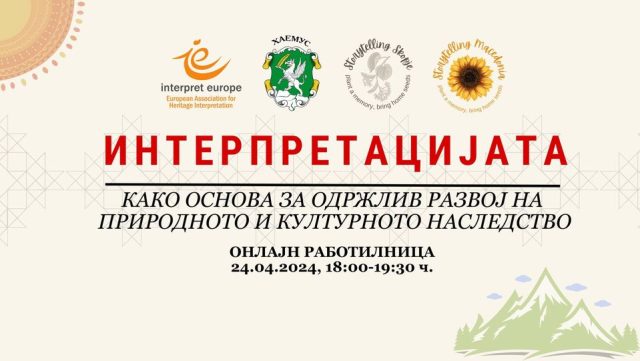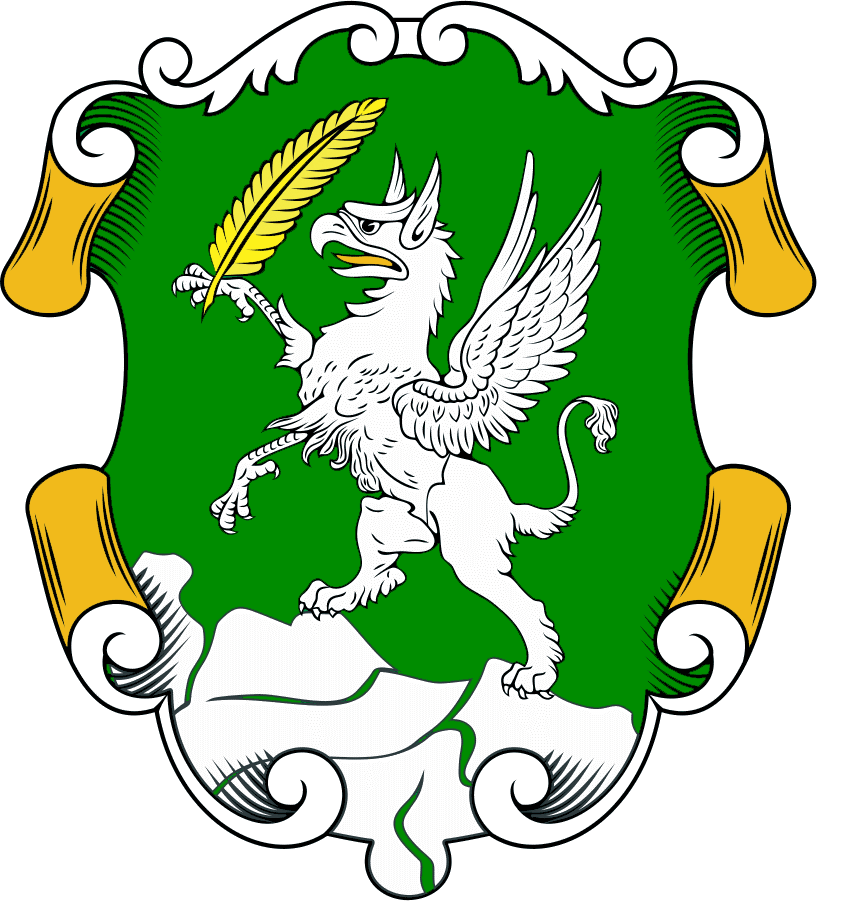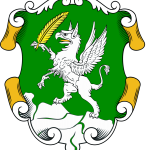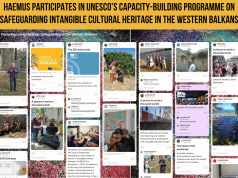
On April 24, 2024 (Wednesday), from 18:00 to 19:30, an online workshop titled “Interpretation as a Basis for Sustainable Development of Natural and Cultural Heritage” was held by HAEMUS in collaboration with Interpret Europe, Storytelling Skopje and Storytelling Macedonia.
The workshop was led by Ms. Vasilka Dimitrovska, director of HAEMUS, a certified interpreter, and the national coordinator of Interpret Europe for Macedonia. Logistic support for the event was provided by Damjan Serafimovski (Museum of the City of Skopje) and Jasmina Boshevska (Nature Expeditions), who are members of Interpret Europe and also members of the Interpret Europe Macedonia team.
The workshop consisted of two parts. The first part, through a presentation, explained the concept of heritage interpretation, with a focus on the role played by Interpret Europe – the largest European association for heritage interpretation, covering its goals, research, publications, communication resources, networking, and education. The second part was open for discussion and addressing questions from all interested parties.
This workshop was intended for all professionals in the field of natural and cultural heritage, including individuals, representatives of institutions, as well as organizations or informal initiatives represented by the participants. Approximately 30 representatives participated, coming from museum institutions, national parks in Macedonia, professionals from the tourism industry, educators from formal and informal education, ecologists, as well as individuals interested in this topic.
Interpretation is a powerful educational, communicative, and visual tool that literally brings heritage to life in front of the eyes of visitors. It enables participants to establish a deeper connection with the locally presented heritage, inspires them, and encourages sustainable practices in the local communities that care for it. Ultimately, through interpretative tools and methods, natural and cultural heritage is preserved for future generations.





